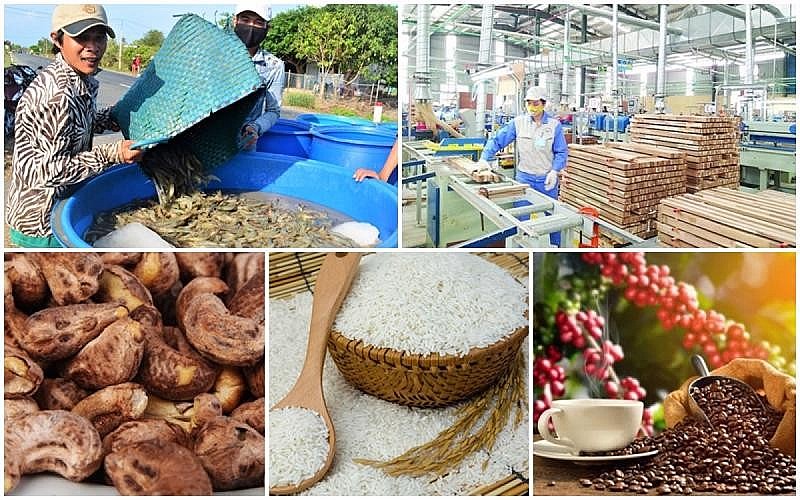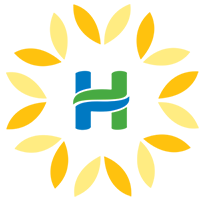Agricultures, Foods, News & Event
Increase the trust of EU retailers in Vietnamese agricultural products
Increasing the trust of EU retailers will help Vietnamese agricultural products be more present in European and North American markets.
EU and new “difficult” things
According to the Vietnam Trade Office in Belgium – EU, the carbon border adjustment mechanism (CBAM) will make declarations according to the EU form from June 2024. Enterprises exporting steel, cement, and fertilizer need to study EU regulations to calculate the amount of CO2 emitted during the production process.

Similarly, the Due Diligent regulation on anti-deforestation (EUDR) will also take effect in 2024, businesses exporting coffee, wooden furniture, and rubber need to carry out non-deforestation certification procedures with very detailed instructions. EU details.
The EU is also strengthening food safety management and trade supervision, especially tax evasion cases from third countries. At the same time, in January 2024, the EU also issued many drug residue thresholds. plant protection, mostly at 0.01mg/1kg, approval of food control programs of animal origin (Vietnam is seafood, honey – eggs and milk are being considered), and measures Emergency and temporary food safety control at border gates.
Mr. Tran Van Cong – Vietnam Agriculture Counselor in the EU market area – informed that the EU is amending regulations related to food irradiation. Accordingly, irradiation may be applied to some herbs and seasonal spices. In addition, the EU may recognize a number of irradiation facilities in countries outside the EU to provide irradiation services for products exported to this market.
To improve the turnover and position of Vietnam’s agricultural, forestry and fishery products in the EU market, Ms. Nguyen Thuy Linh – Department of International Cooperation – Ministry of Agriculture and Rural Development – said, the Project to promote exports Exporting agricultural, forestry and fishery products to the EU market by 2030 has introduced a new approach focusing on improving quality, stabilizing supply and traceability for agricultural, forestry and fishery products.
At the same time, reorganize all trade promotion activities to ensure better connection and greater efficiency; Developing distribution channels and enhancing information, ensuring timely communication from representative agencies in the EU to ministries, branches, associations and businesses.
The project also sets a target that by 2025, the export value of agricultural, forestry and fishery products to the EU market will reach 5 – 5.5 billion USD; The proportion of exports of processed agricultural, forestry and aquatic products to the EU reached about 30%, agricultural, forestry and aquatic products directly accessible to final customer channels in the EU reached 20%;…
The goal is that by 2030, the export value of agricultural, forestry and fishery products to the EU market will reach 7.5 – 8 billion USD, the proportion of exports of processed agricultural, forestry and fishery products to the EU will reach about 50% and continue to Direct access to final customer channels in the EU reached 30%;…
To date, the EU market is one of Vietnam’s four major agricultural, forestry and fishery export markets. Mr. Le Thanh Hoa – Director of Vietnam SPS Office (Ministry of Agriculture and Rural Development) – said that in assessing risks and opening the market, the EU only requires exporting countries to follow the correct process, Meets all regulations on ensuring food hygiene and safety as well as minimizing contamination on products.
For example, in the past, Vietnam exported very good herbs and spices to the EU, however, due to problems with microorganisms and some chemical residues on spice plants, the EU asked the Plant Protection Department to inspect and evaluate them. Prices for growing areas to issue codes to be exported to the EU.
Similarly, the EU is also requiring the Plant Protection Department to check and issue codes for a number of products, including citrus trees. Therefore, businesses need to update specific information about the market to do better in the future and promote agricultural and food trade in this market.
Add information channels for Vietnamese agricultural products into the EU
According to the Plant Protection Department (Ministry of Agriculture and Rural Development), in 2023, the EU has announced 120 changes in pesticide residue levels.
To help retail chains around the world find safe, quality goods in Vietnam, February 22, 2024, in Hanoi, SPS Vietnam Office and Tentamus Innovation Center in the Federal Republic of Germany signed a memorandum of cooperation in providing knowledge and technical solutions on food safety control to Vietnamese exporters.
“Vietnam and Thailand are two agricultural product suppliers that international retail chains are particularly interested in,” Dr. Jochen Zoller – Founder, General Director of Tentamus Group – said the reason for choosing Vietnam. to provide a software system to notify contents and regulations related to hygiene, epidemiology and plant and animal quarantine (SPS) from members of the World Trade Organization (WTO).
With the implementation of a software system on maximum allowable residue limits (MRLs) in the coming time, export businesses will avoid information ambiguity, helping agricultural products reach more markets. difficult markets”. This is also a solution to help retail chains around the world find safe sources of goods in a number of potential markets, including Vietnam.
In particular, Tentamus provides a software system that helps transfer information to Vietnamese businesses effectively and systematically. The Vietnam SPS Office is responsible for receiving updated information on SPS measures of WTO member countries, then updating it to the software system.
Businesses that register to receive this information will be automatically forwarded by the system. This information will also be provided free of charge to producers and exporters. In the immediate future, 7 key product groups of Vietnam exported to the EU will be prioritized by the Vietnam SPS Office and Tentamus, including: rice, pepper, cashew nuts, passion fruit, honey, vegetables and seafood.
To enhance the value of Vietnamese agricultural products, help increase prestige, and contribute to brand building in Europe, especially with retail systems, Mr. Jochen Zoller said, Tentamus will actively discuss with partners. retail cooperation in Europe, which emphasizes the fact that Vietnam has a public, transparent, and effective information focal point on SPS.
Cooperating with Tentamus, Mr. Le Thanh Hoa said, this will help export businesses have more opportunities to bring products into supermarket and retail systems in Europe. “To sell well at retail chains, exported products need to meet consumer tastes, packaging, design, in addition to complying with food safety and hygiene standards. Information of Tentamus, therefore, will be very useful,” Mr. Le Thanh Hoa emphasized.
Source: https://congthuong.vn/tang-long-tin-cua-cac-nha-ban-le-eu-voi-nong-san-viet-304920.html

